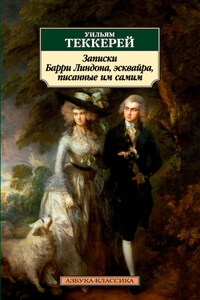CHAPTER I
THE WARDEN'S LODGINGS
The Founders and the Benefactors of Oxford, Princes, wealthy priests, patriotic gentlemen, noble ladies with a taste for learning; any of these as they travelled along the high road, leaving behind them pastures, woods and river, and halted at the gates of the grey sacred city, had they been in melancholy mood, might have pictured to themselves all possible disasters by fire and by siege that could mar this garnered glory of spiritual effort and pious memory. Fire and siege were the disasters of the old days. But a new age has it own disasters – disasters undreamed of in the old days, and none of these lovers of Oxford as they entered that fair city, ever could have foretold that in time to come Oxford would become enclosed and well-nigh stifled by the peaceful encroachment of an endless ocean of friendly red brick, lapping to its very walls.
The wonder is that Oxford still exists, for the free jerry-builder of free England, with his natural right to spoil a landscape or to destroy the beauty of an ancient treasure house, might have forced his cheap villas into the very heart of the city; might have propped his shameless bricks, for the use of Don and of shopkeeper, against the august grey college walls: he might even have insulted and defaced that majestic street whose towers and spires dream above the battlemented roofs and latticed windows of a more artistic age.
But why didn't he? Why didn't he, clothed in the sanctity of cheapness, desecrate the inner shrine?
The Wardens and the Bursars of colleges could tell us much, but the stranger and the pilgrim, coming to worship, feel as if there must have flashed into being some sudden Hand from Nowhere and a commanding Voice saying – "Thus far shalt thou come and no farther," so that the accursed jerry-builder (under the impression that he was moved by some financial reasons of his own) must have obediently picked up his little bag of tools and trotted off to destroy some other place.
Anyhow the real Oxford has been spared – but it is like a fair mystic gem in a coarse setting. No green fields and no rustling woods lead the lover of Oxford gently to her walls.
The Beauty of England lies there – ringed about with a desolation of ugliness – for ever. Still she is there.
Oxford has never been merely a city of learning, it has been a fighting city.
In the twelfth century it sheltered Matilda in that terrible, barbaric struggle of young England.
In the seventeenth century it was a city in arms for the Stuarts. But these were civil wars. Now in the twentieth century Oxford has risen like one man, like Galahad – youthful and knightly – urgent at the Call of Freedom and the Rights of Nations.
And this Oxford is filled with the "sound of the forging of weapons," the desk has become a couch for the wounded, the air is full of the wings of war.
In this Oxford where the black gown has been laid aside and young men hurry to and fro in the dress of the battle-field – in this Oxford no man walked at times more heavily, feeling the grief that cannot be made articulate, than did the Warden of King's College as he went about his work, a lonely man, without wife or child and with poignant memories of the very blossom of young manhood plucked from his hand and gone for ever.
And of the men who passed under his college gates and through the ivy-clad quadrangles, most were strangers – coming and going – learning the arts of war – busy under orders, and the few, a poor remnant of academic youth – foreigners or weaklings. And he, the Warden himself, felt himself almost a stranger – for into his life had surged new thoughts, anxious fears and ambitious hopes – for England, the England of the years to come – an England rising up from her desolation and her mourning and striving to become greater, more splendid and more spiritual than she had been before.
It was a late October afternoon in 1916 and the last rays of autumn sunshine fell through the drawing-room windows of the Warden's lodgings. These rays of sunshine lit up a notable portrait over the stone fireplace. The portrait was of a Warden of the eighteenth century; a fine fleshy face it was, full of the splendid noisy paganism of his time. You can stand where you will in the room, but you cannot escape the sardonic stare that comes from his relentless, wide-open, luminous eyes. He seems as if he challenged you to stop and listen to the secret of his double life – the life of a scholar and divine of easy morals. Words seemed actually upon his lips, thoughts glowing in his eyes – and yet – there is silence.
There was only one person in the room, a tall vigorous woman, still handsome in spite of middle age, and she was looking up at the portrait with her hands clasped behind her back. She was not thinking of the portrait – her thoughts were too intent on something else. Her thoughts indeed had nothing to do with the past – they were about the future, the future of the new Warden, Dr. Middleton, the future of this only brother of hers whom she loved more than anyone in the world – except her own husband; a brother more than ten years younger than herself, to whom she had been a mother till she married and who remained in her eyes a sort of son, all the more precious to her because children had been denied her.








